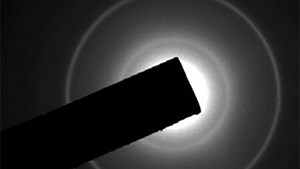News
Titanium oxide material lets sunlight drive green hydrogen production
A team of materials scientists, led by distinguished professor Michel Barsoum, PhD, and doctoral researcher Hussein O. Badr, PhD, have developed a breakthrough titanium oxide nanofilament material that can efficiently split H2 from water using only sunlight. In tests, the material outperformed leading commercial photocatalysts by a factor of 10 and remained stable for more than 6 months. The discovery could uncouple large-scale production of H2 from the use of fossil fuels.

Barsoum said the inexpensive, scalable material could help “unlock the potential of green H2. The nanofilaments may also have applications in solar cells, batteries and water purification. The breakthrough builds on Drexel’s ongoing clean energy research to develop materials for technologies like H2 fuel cells. Further studies are underway to confirm this and optimize the nanofilaments, but initial results are so promising that the team has already founded a startup to commercialize the technology, working with Drexel’s Office of Innovation.

